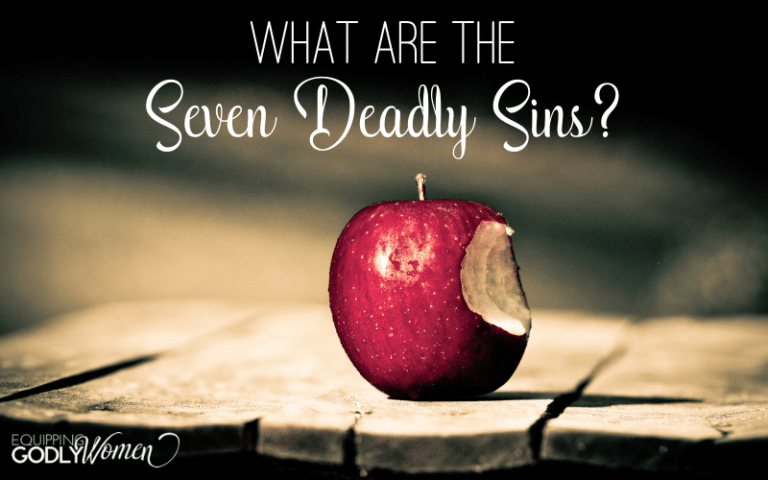Sola Fide: Is Faith Alone Enough for Salvation?

Is sola fide (faith alone) enough for salvation?
Growing up, I was taught that it was.
I remember learning Romans 10:13, which promises us:
“Everyone who calls on the name of the Lord will be saved.”
I was taught that it didn’t matter what we did or how bad our sins were. As long as we said the Sinner’s Prayer, we were good to go.
If we did good works (and we should!), that was great. But all our works, merits, and accomplishments had absolutely no bearing on our salvation.
We could commit the worst crimes, and it wouldn’t matter. God would still love us, forgive us, and let us go to Heaven to be with Him someday.
While there is certainly a great deal of truth to this (God can and does love us and forgive us no matter what), the way sola fide is presented can often miss the mark.
The truth is: The Bible is full of verses that say our works DO matter.
We can’t earn our salvation. Faith is necessary. But faith alone isn’t enough.
*This post contains affiliate links, which means if you make a purchase, I may make a small commission at no additional cost to you. This helps cover the many costs of running this site and allows me to help provide for my growing family. Thank you!
What is Sola Fide? (Meaning and Definition)
One of the five solas of the Protestant Reformation, sola fide means faith alone. The doctrine of sola fide teaches that Christians receive justification by faith alone, and that we cannot earn our salvation through good works.
Catholic priest turned Protestant reformer Martin Luther taught sola fide in response to his belief that the Roman Catholic church was erroneously teaching a works-based salvation (with the sacraments) that did not line up with Scripture.
Since then, sola fide has become one of the core doctrines of the Reformed church and many other Protestant denominations.
The five solas of the Protestant Reformation are sola fide (faith alone), sola scriptura (Scripture alone), sola gratia (grace alone), solus Christus (Christ alone), and soli Deo gloria (glory to God alone).
Why Protestants Believe in Justification by Faith Alone (Sola Fide)
Because “Protestant” refers to a group of various Christian denominations started as a result of Martin Luther’s Protestant Reformation, there is no one official Protestant position.
That being said, Protestant denominations who do believe in justification by faith alone (sola fide) typically base their beliefs on Bible verses such as:
- Ephesians 2:8-9: “For it is by grace you have been saved, through faith—and this is not from yourselves, it is the gift of God—not by works, so that no one can boast.”
- Romans 3:23: “and all are justified freely by his grace through the redemption that came by Christ Jesus.”
- Romans 3:28: “For we maintain that a person is justified by faith apart from the works of the law.”
- John 3:16: “For God so loved the world, that he gave his only Son, that whoever believes in him should not perish but have eternal life.”
- John 5:24: “Very truly I tell you, whoever hears my word and believes him who sent me has eternal life and will not be judged but has crossed over from death to life.”
- John 6:29: “Jesus answered, ‘The work of God is this: to believe in the one he has sent.'”
- Acts 10:43: “All the prophets testify about him that everyone who believes in him receives forgiveness of sins through his name.”
- Galatians 2:15-16a: “We who are Jews by birth and not sinful Gentiles know that a person is not justified by the works of the law, but by faith in Jesus Christ.”
- Philippians 3:9: “and be found in him, not having a righteousness of my own that comes from the law, but that which is through faith in Christ—the righteousness that comes from God on the basis of faith.“
That’s a lot of verses that say we receive justification, salvation, or eternal life through faith!
And we can all agree: Our salvation is a free gift from God that none of us deserves. (Romans 6:23)
However, and this is important, none of these verses say that we are saved by faith alone (sola fide).
The Only “By Faith Alone” Verse in the Bible
There is only one verse in the entire Bible that contains the phrase “by faith alone” and it doesn’t support sola fide.
James 2:24 says, “You see that a person is considered righteous by what they do and not by faith alone.”
Yes, we are justified through faith. No, we cannot earn our salvation.
But nowhere does the Bible teach we are saved by faith alone.
In fact, there are just as many Bible verses that refute the idea of justification by faith alone (sola fide).
Bible Verses that Refute Justification by Faith Alone (Sola Fide)
As a child, I simply believed what my Baptist church pastor and Sunday School teachers taught me about theology and the gospel.
However, once I started reaching sola fide for myself, I was surprised to see how many Scripture verses clearly refute the doctrine of justification by faith alone. For example:
Matthew 19:16-17
“Just then a man came up to Jesus and asked, ‘Teacher, what good thing must I do to get eternal life?’
‘Why do you ask me about what is good?’ Jesus replied. ‘There is only One who is good. If you want to enter life, keep the commandments.'”
You could argue that this command was given under the Old Covenant, before Jesus’s death and resurrection fully established the New Covenant we’re under today (which is true). However, there’s more…
Matthew 19:29
“And everyone who has left houses or brothers or sisters or father or mother or wife or children or fields for my sake will receive a hundred times as much and will inherit eternal life.“
This verse highlights the importance of not taking one single verse out of context, even if it’s meaning seems simple and straightforward. No Christian denomination is teaching that salvation come by abandoning your family or property… even though that’s what this verse says.
Matthew 25:31-46
“Then he will say to those on his left, ‘Depart from me, you who are cursed, into the eternal fire prepared for the devil and his angels. For I was hungry and you gave me nothing to eat, I was thirsty and you gave me nothing to drink, I was a stranger and you did not invite me in, I needed clothes and you did not clothe me, I was sick and in prison and you did not look after me…’
“Then they will go away to eternal punishment, but the righteous to eternal life.” (vv. 41-43, 46)
In this parable, Jesus is describing the final judgment that will happen at the end of the Earth. Here, the sheep and goats are separated, not by what they believe, but by the actions they did while on Earth.
Romans 2:6-7
“God ‘will repay each person according to what they have done.’ To those who by persistence in doing good seek glory, honor and immortality, he will give eternal life.“
The apostle Paul wrote these verses (and the ones to follow) after the New Covenant was thoroughly established. They still apply to us today.
Romans 2:13
“For it is not those who hear the law who are righteous in God’s sight, but it is those who obey the law who will be declared righteous.“
Simply hearing God’s Word isn’t enough. We have to obey it.
James 2:14, 17
“What good is it, my brothers and sisters, if someone claims to have faith but has no deeds? Can such faith save them? … In the same way, faith by itself, if it is not accompanied by action, is dead.“
Simply claiming to have “faith” isn’t enough. Real faith naturally produces good works. If your faith isn’t producing good works, it isn’t real faith.
James 2:19
“You believe that there is one God. Good! Even the demons believe that—and shudder.”
It isn’t enough to simply believe God exists. Even Satan and his demons believe that, and they certainly aren’t going to Heaven or enjoying a close relationship with Jesus Christ.
James 2:21-22, 24, 26
“Was not our father Abraham considered righteous for what he did when he offered his son Isaac on the altar? You see that his faith and his actions were working together, and his faith was made complete by what he did… You see that a person is considered righteous by what they do and not by faith alone… As the body without the spirit is dead, so faith without deeds is dead.”
Salvation doesn’t come through faith alone (apart from works). It comes from faith and works working together.
It’s very easy to find Bible verses that seem to support the doctrine of justification by faith alone (sola fide). Yet, we must be careful to read the Bible as a whole — not pick individual verses out of context.
When you read the Bible as a whole, a completely different picture begins to emerge.
Yes, we are saved through faith, but not faith alone (sola fide). If our faith is real, it will naturally produce good works. Without good works, our faith is dead, hollow, and worthless.
What Do Catholics Believe About Salvation?
Because many people mistakenly believe that the Catholic Church teaches that people are saved by their works (not justified by faith alone), I met with a Catholic priest for clarification. Here’s what I found.
Contrary to popular belief, Catholics do not believe that people can be saved by their works, apart from faith.
In fact, the Catholic Catechism expressly rejects this idea:
“Believing in Jesus Christ and in the One who sent him for our salvation is necessary for obtaining that salvation. ‘Since ‘without faith it is impossible to please [God]’ and to attain to the fellowship of his sons, therefore without faith no one has ever attained justification, nor will anyone obtain eternal life ‘but he who endures to the end.”” (CCC 161)
Catholics believe we are saved through faith in God, but not just any kind of faith. We must have an active, living faith.
It doesn’t matter whether these works are small or large, many or few, because it isn’t our works that save us.
Rather, if we truly believe in God and seek to live for Him, we will naturally produce good works as a result.
The Catechism of the Catholic Church also states:
- “Faith is an entirely free gift that God makes to man” (CCC 162)
- “Salvation comes from God alone” (CCC 169)
See Also: What is Purgatory? What are Indulgences?
Francis Chan on Faith vs. Works
It isn’t only Catholics who believe that true faith results in good works, either.
Francis Chan is one very well-known Protestant pastor and bestselling author who has also debunked the doctrine of sola fide publicly from the platform.
(Start at 29:30 for the relevant — and sometimes humorous! — talk about faith and works.)
True Faith Means Good Fruit Will Follow
So what did I learn about the meaning of sola fide? At the end of the day it turns out that my original beliefs were a great place to start. What is true about sola fide is that works don’t save us — we are only saved by God’s grace.
But this doesn’t mean that works don’t matter. True faith in Jesus and love for Him means that our lives will show that love to others, just like His life did.
Our works are a really great indication of what kind of faith we have — and if we even have faith at all.
And really, doesn’t this just make sense? If you really, truly believed in Jesus, wouldn’t you naturally want to follow him? And of course, by follow Him, I mean keep his commandments and teachings, an outward expression of your inner faith that leads to salvation.
I’d love to hear your thoughts and opinions! What did you grow up learning about the meaning of sola fide? Have your beliefs and your faith changed over time? Leave me a note (or a book 🙂 ) in the comments section below!

Enjoyed this post? Don’t miss the rest of the posts in the series!
The Day I Realized My Religion Got it Wrong
10 Common Catholic Church Myths that Critics Believe
Is the Eucharist Really Just a Symbol?
Who has the Ultimate Authority? A Biblical Look at Sola Scriptura
A Brief Look at the History of Christianity
What All Christians Should Know About Priests, the Pope and Confession
What Do Catholics Really Believe About Mary, Saints and Statues?
Infant Baptism or Believer’s Baptism? Which is Correct?
What is Purgatory? What are Indulgences?
Why Do Catholics….? Honest Answers to Your Burning Questions







The demons don’t have a saving faith. A saving faith will naturally produce fruit. There are plenty of people who claim to believe and do good things but if their faith is not really true, their works are worthless. And if the faith is real, they will naturally produce fruit and be sanctified over time. So in the end it comes back to the faith. I wrote a blog on the same topic. I’ve attached the link here for a different perspective and I think a valid explanation. 🙂
http://theentrepreneurialwife.com/2014/12/19/grace-through-faith-or-grace-through-faith-and-works-what-the-bible-teaches/
I read your post–very well done! Except that I hate to break it to you–what you are arguing is pretty much exactly what the Catholic church argues 🙂 That the works don’t save us, but that if you have a REAL faith, it WILL produce good works or you probably didn’t really have faith at all. Sounds like we all agree?
What good work did the thief on the cross perform to get him into heaven?
No, I’m not saying you HAVE to do good works or that good works are what get you into Heaven at all. You could do 0 good works or 1,000 good works–the number makes absolutely no difference at all. What I’m saying is that it isn’t enough to just believe and then continue on with your life as normal. Like I mentioned in the post, even Satan and his demons believe–so simply knowing isn’t enough. As for the thief on the cross, he never had a chance to change his life one way or the other, but Jesus knew his heart and knew that it was truly changed. I believe, if given a chance, he would have come down from that cross a different man. It’s a tricky distinction, but does that make sense?
You should really look into the Ancient Orthodox Christian faith. It is the fullness of Christianity and more and more Americans are discovering it. God bless you. OrthodoxMom blog.
How is it different from Catholicism?
Great piece! Many accuse Mormons of also believing that you are saved by works.
But, I think something you need to look into Brittany is the difference between justification and sanctification. Works would justify us. That is how the Mosaic law was set up – on the laws of justice. However, we all fail and come short. Which is where we need the mercy and grace of gos to actually save us, as we cannot save ourselves.
Now sanctification is different than justification. I am not personally 100% clear on the differences, but they are different. Just as exaltation is different from both justification and sanctification.
Faith alone will not save. But works alone will not save. One scripture you did not mention is when Christ talks about many who will say unto him Lord, Lord, and he will know them not. This is exactly what Christ said on the matter! Belief alone will not save. It is the foot in the door. It is the first step. But where is the commitment? God wants us to love and serve him more than all, and obey his commandments. Ignoring works is blasphemous.
Thanks, Katelyn! I can definitely see how this concept trips up people on both sides. You really have to be clear when talking about it and explain all of the different nuances or it’s way to easy to jump to the wrong conclusions if both sides aren’t really discussing and listening.
I *think* justification means that we are made right in terms of payment, and sanctification means we are atually made right internally or washed clean so to speak? (Okay, I just looked it up to make sure before I hit publish and that’s right lol)
I have really been studying on this and struggling to understand. I have always believed once saved always saved unless you deny Christ as the savior. I understand that works should be the product of belief and it is in fact a long journey for most of us. It isn’t like you get saved and are instantly transformed and completely change. It takes time. Transformation is really a process. I guess the part I struggle with is that we are all going to go through things, seasons, and sometimes fall away in some cases. In those seasons, I do not think we are damned if we die while still in the growing process…. if that makes sense. But I do not know. And truly, I think only God can possibly judge that. I hope we all make it <3 It can be very confusing really.
It IS confusing and I can definitely see how both sides get into fights over it! I agree with you, too, that there will be seasons. But God knows where our heart is ultimately, and if it really is going away or if it’s just a season.
I believe that we are saved by God’s grace ( a free GIFT) but after the initial belief in Christ we must maintain our salvation.
Hmm…. I think that would still count as us relying on our own effort though – if we were the ones responsible for maintaining.
The best way I’ve heard it explained is simply that we are saved by faith, but that it’s an active faith – a faith that naturally produces good works.
It’s definitely a tricky subject! How much is us? How much is God? Where do you draw the line?
Thanks for your thoughts!
If the good works of unsavede are like a filthy rags in front of God than why should I act good.. troubling myself knowing that there is no benefits for the unsaved people like me.. As the scripture is quite clear that definitely I will be contempt for eternal Bcoz i fail to av faith in Jesua..?? Pls help me is there any benefits perform by the unsaved people are of any good towards God???
Yes, our “works” (the thing we try to do to make ourselves “good enough”) are like filthy rags BUT that doesn’t mean WE are filthy rags! It just means we could never measure up on our own strength. But the beauty of the Gospel is that we don’t have to! Romans 5:8 tells us “But God demonstrates his own love for us in this: While we were still sinners, Christ died for us.” The Bible is FULL of verses that say how much God LOVES us and adores us. Not because we deserve it, not because of who we are or what we do, but because of who HE is. God is love, and He has chosen to pour that love out on us! All we have to do is accept it.
Romans 3:23: “for all have sinned and fall short of the glory of God”
Romans 6:23: “For the wages of sin is death, but the gift of God is eternal life in[a] Christ Jesus our Lord.”
Romans 5:8: “But God demonstrates his own love for us in this: While we were still sinners, Christ died for us.”
Romans 10:9 “If you declare with your mouth, “Jesus is Lord,” and believe in your heart that God raised him from the dead, you will be saved.”
Ephesians 2:8-9: “For it is by grace you have been saved, through faith—and this is not from yourselves, it is the gift of God— 9 not by works, so that no one can boast.”
This doesn’t mean that our actions don’t matter at all though. We are saved through God’s love, mercy and grace. BUT then we have a responsibility to behave like it after the fact. (Not in order to earn our salvation — we cant — but because once we are Christians, that should be our natural response)
These articles may help you as well:
https://equippinggodlywomen.com/faith/are-you-a-christian-are-you-sure/
https://equippinggodlywomen.com/faith/faith-alone-enough/